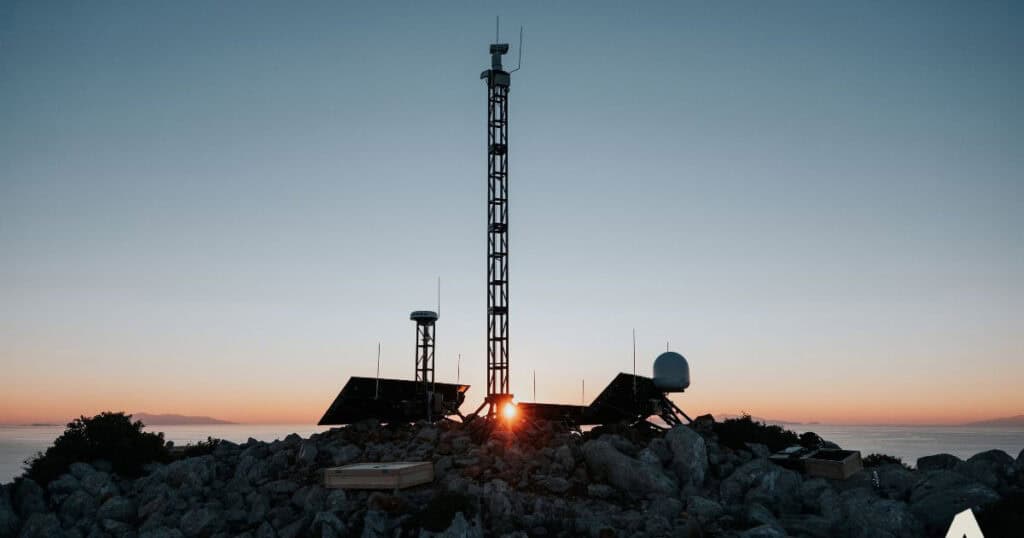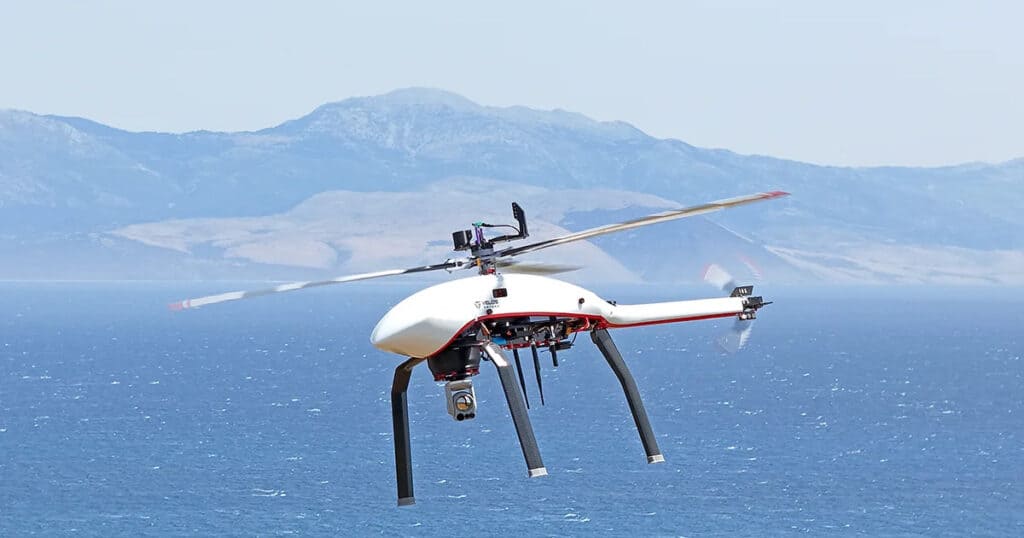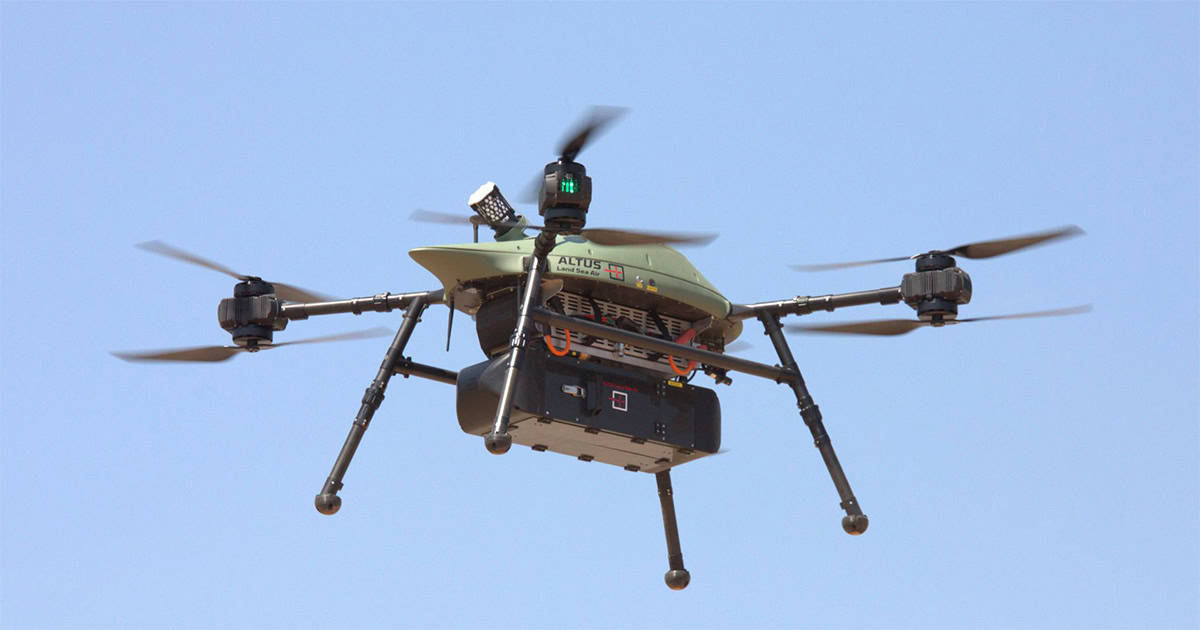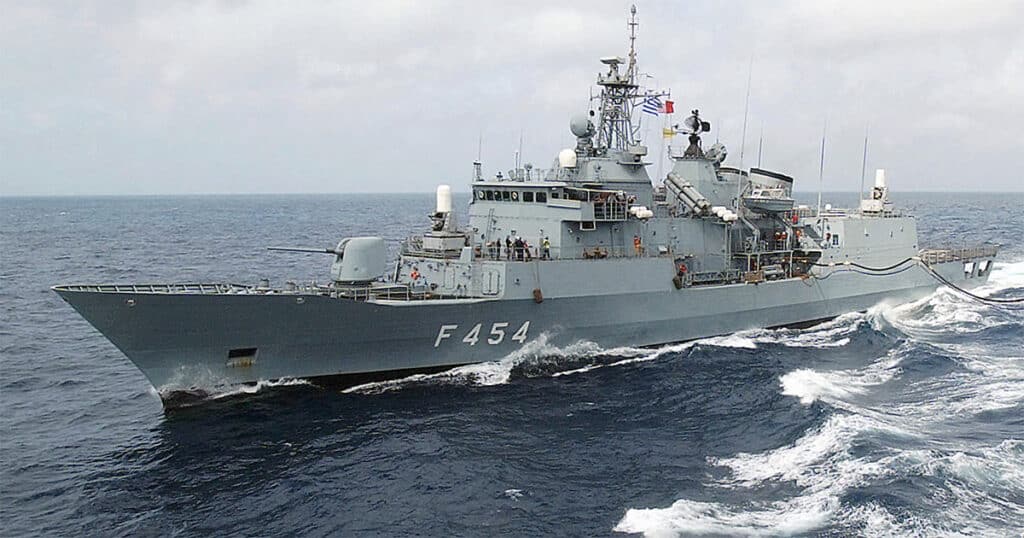Greece doesn’t often make headlines in defense tech. But this year, a company from Chania, Crete, landed on the global list of top drone manufacturers, sharing space with firms from the United States, Israel, and China.
And it’s not alone.
Across the country, from Athens to Karditsa to a small town in the northern Peloponnese, a new generation of Greek companies is designing drones that are being deployed across continents. These aircraft are now flying over European borders, patrolling South Korean waters, inspecting British railway lines, and, in at least one case, delivering organs for transplant in the United States.
One of the firms leading this shift is ALTUS-LSA.
Founded in the early 2000s and led by CEO Zacharias Sarris since 2011, the company builds unmanned aerial vehicles for defense, civil protection, and rescue missions. Its flagship model, the ATLAS-8, is built to operate in harsh conditions with artificial intelligence controlling flight through in-house software. Depending on the configuration, it can carry between 40 and 60 kilograms of payload.
In 2025, ALTUS became the first Greek company to appear on The Defense Post’s list of the top 100 global drone manufacturers, ranking 80th. Its clients include NATO, FRONTEX, the OSCE, the Greek Armed Forces, and the Cyprus Police.
While ALTUS has been refining its technology over two decades, a newer player is quickly expanding.

Delian Alliance Industries, formerly Lambda Automata, was recently named one of the top 20 defense tech startups in Europe by Dealroom. Its founders include engineers with experience at Apple and the Hellenic Military Academy.
The company has raised six million euros in seed funding and operates out of Athens and London. It builds autonomous surveillance systems that combine AI with real-time field data. One of its key products, the Lambda Autonomous Surveillance Tower, is already in deployment and designed to detect threats with minimal human oversight.
In 2024, Delian acquired Smart Flying Machines, a Karditsa-based drone company. Since then, it has expanded into the field of electronic warfare, developing technologies to disable rogue drones and navigate without GPS.
Another standout comes from a place few would expect.

Velos Rotors, based in Xylokastro, builds unmanned helicopters that fly longer, farther, and in tougher conditions than typical quadcopters. Their Velos V3 system has been tested by the Royal Thai Armed Forces, deployed on the front lines in Ukraine, and adopted by the Korea Coast Guard for coastal surveillance.
In the United Kingdom, Network Rail has partnered with Velos to monitor train tracks and detect trespassing, which remains one of the top causes of rail delays.
The company was founded in 2011 by Aris Kolokythas and Tasos Argyros. Over the past decade, it has built a reputation for high-endurance, weather-resistant aerial systems.
In the United States, Velos aircraft have reportedly been used in transplant organ transport trials by MissionGO in Baltimore. The MG Velos 100, employed in those missions, is a co-branded derivative based on Velos technology but assembled separately to meet US certification standards. It is not identical to the Velos V3, though it shares core airframe components, including the patented twin-transmission system.
In 2023, Velos secured two million dollars in funding from Marathon Venture Capital to scale production and reach new markets.
What makes these stories remarkable is how they came together with very little fanfare.
These companies did not emerge from major government programs or multinational defense contractors. They were built slowly, through focused engineering, long-term planning, and a growing confidence that Greece could compete in complex, high-tech industries.
That confidence is not misplaced. Since 2022, investment in European defense and resilience tech has surged. Governments are backing dual-use innovation, supporting technologies that serve both military and civilian purposes. Greece, with its mix of engineering talent, military infrastructure, and academic research, is beginning to benefit.
A country once known primarily as a consumer of imported technology is becoming a builder. Greek firms are exporting real systems, not just hardware, but also software and design, that solve problems in the field and attract international buyers.
And this is likely just the beginning.
Drone labs are emerging at Greek universities. Startups are entering European defense accelerator programs. Funding that once seemed out of reach is now flowing toward companies building serious systems for logistics, surveillance, and emergency response.
As drones continue to reshape modern security, infrastructure, and humanitarian work, Greece is no longer on the sidelines. Quietly and steadily, it is shaping what comes next.
Cosmos Philly is made possible through the support of sponsors and local partners. If you’d like to become a sponsor or promote your business to our community, get in touch.







